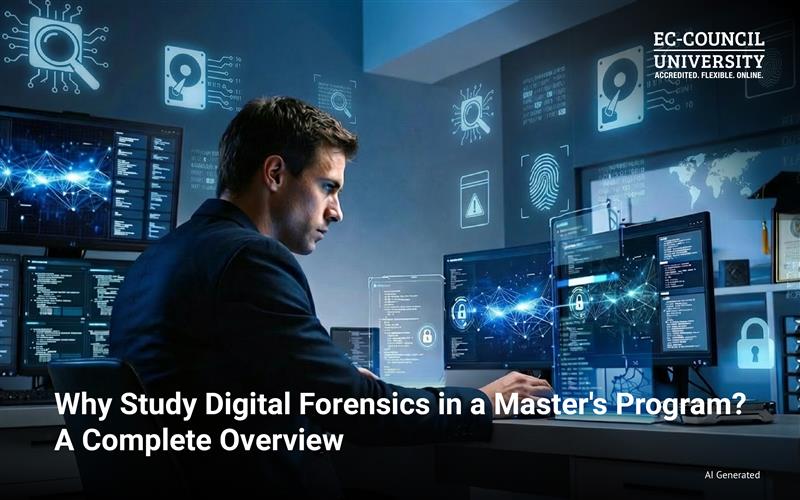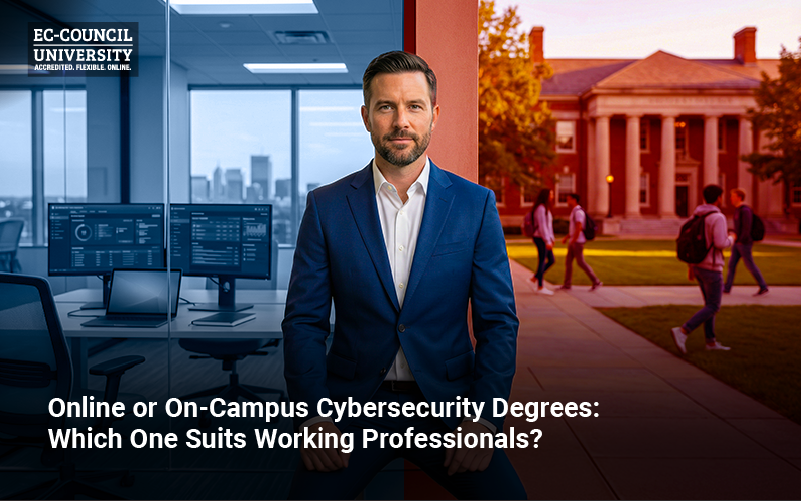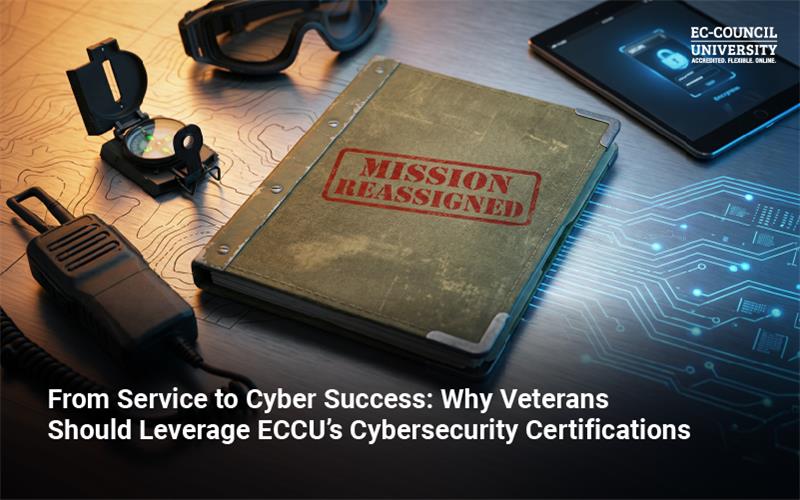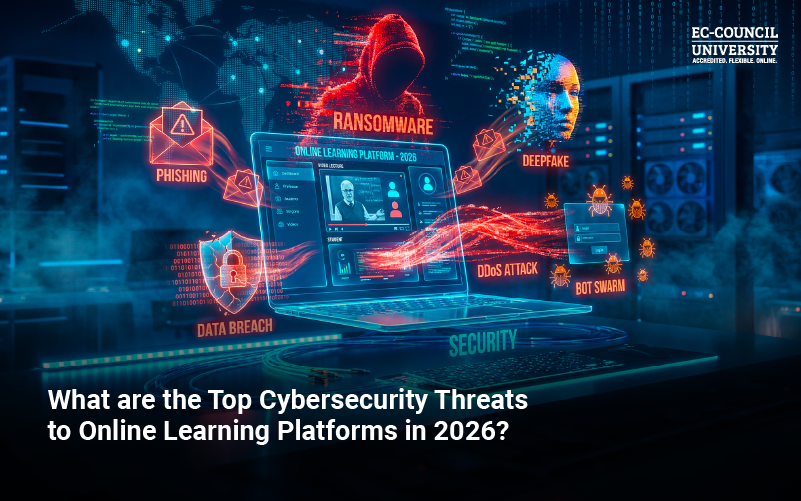Looking to transition into the field of cyber security, but unsure if cyber security for veterans is the right choice? Well, you are not alone on this journey. Many veterans like you have stepped into this journey and moved forward successfully. As veterans, you bring experience, discipline, and a strong sense of duty. All the traits that make you invaluable in cyber security.
Cyber security for veterans is a perfect career match. An industry that needs your skills, aptitude, and mindset in the field. It allows you to continue your mission of protecting your country and community in a new domain. The industry offers rewarding career opportunities, good paychecks, long-term growth, and stability.
Why Cybersecurity for Veterans is the Right Career Choice
Cyber security and military service share more in common than you think. The strategic mindset, technological know-how, and values you bring to the workforce align with many cyber security careers.
- Mission-Driven Purpose: You have been trained to defend and respond under pressure. Cyber security is no different. Be it safeguarding government or private infrastructure, sensitive data, or national infrastructure, you are a frontline defender making a real-world impact.
- Natural Alignment with Military Skills: Your background gives you the right head start. You are more prepared than you realize. Think about your experience with:
- Secure communications
- Threat detection and surveillance
- Risk assessment and mitigation
- High-stakes decision-making
These skills align with cyber security roles and domains like network defense, cyber intelligence, and incident response. Your hands-on experience and competencies in these specialized fields provide a solid foundation to begin your career in the industry.
- Comfort with Technology and Advanced Systems: If you have worked with advanced systems and technology like signals, communications, or IT systems. In that case, you will adapt quickly to cyber security tools like SIEMs, intrusion detection systems, firewalls, and more. Even without an IT background, your military training equips you to learn fast and operate with precision.
- Experience Working on Classified Profiles: You know the importance of confidentiality, security clearance, and following strict protocols. That experience is critical in cyber security, especially for defense, federal contracting, or national infrastructure roles.
- Eligibility for Security Clearance: You may hold or can easily obtain security clearances, which gives you a significant edge in landing jobs in government agencies, federal contractors, and defense sectors in the cyber security industry.
- Veteran-Support Initiatives: There is a growing movement to support veterans in cyber security, with initiatives from the government and private sectors. You can fast-track your career transition in cyber security with EC-Council University’s educational programs.
- Strong Career Outlook and Earning Potential: According to the Bureau of Labor Statistics, job growth in cyber security is projected to remain strong for years. This makes it a fantastic opportunity for you to earn financial stability and long-term growth in the industry.
Job Roles in Cyber Security That Fit Veterans
The Cyber Security industry offers you an opportunity to explore different roles that match your interests and background. Here is how your military experience counts and can be mapped to in-demand positions:
- Cybersecurity Analyst: Veterans with high-intel, surveillance, or security operations experience may find this the best career fit.
Role Overview: Cyber Security Analysts protect an organization’s digital assets by monitoring networks, analyzing vulnerabilities, and responding to security breaches. It is a mission-critical role where your analytical thinking and situational awareness pay off. - Security Operations Center (SOC) Specialist: Veterans with hands-on experience in IT or communications may find this role suitable.
Role Overview: SOC specialists work in fast-paced environments to detect, analyze, and respond to real-time cyber incidents. If you thrive under pressure in the field and execute protocols efficiently, this one’s for you. - Ethical Hacker / Penetration Tester: Veterans with tactical thinking or red team experience may find this role interesting.
Role Overview: Ethical hackers identify network weaknesses before malicious hackers can exploit them. Your adversarial training gives you the upper hand in offensive security. Understanding defense and attack strategies makes you an asset in offensive security testing. - Cybersecurity Engineer: Technically trained veterans or those with systems and engineering backgrounds may find this role suitable.
Role Overview: If you have designed and built secure systems and have experience working with mission-critical systems, you would transition well into building resilient IT infrastructure. - Digital Forensics Analyst: Veterans who worked in law enforcement, intelligence, or investigative roles could find this role suitable.
Role Overview: Digital Forensics analysts work on legal investigations, including tracing cybercriminal activities, collecting digital evidence, and reporting. Your experience with field investigations and reporting makes you an excellent fit for cyber security. - Risk and Compliance Officer: Veterans familiar with SOPs, audits, or regulatory frameworks may be best suited for the role.
Role Overview: The role focuses on regulatory frameworks like NIST, ISO, and GDPR. Your experience and familiarity with SOPs, compliance audits, and maintaining documentation make these roles suitable.
EC-Council University: Supporting Your Cybersecurity Transition
EC-Council University is a military-friendly online university extending its support to veterans, active-duty service members, and their families through its education programs. The University offers degrees and graduate certificate programs to help you succeed in your career. Here is how ECCU helps veterans make the career transition-
- VA Education Benefits: The U.S. Department of Veterans Affairs qualifies ECCU for accepting multiple VA education benefits. Military Tuition Assistance Programs
ECCU accepts multiple military tuition assistance under different VA education benefit programs, including:- Post-9/11 GI Bill® (Chapter 33)
- Montgomery GI Bill® (Chapter 30)
- Veteran Readiness and Employment (VR&E)
Based on your program eligibility, the tuition assistance you receive can help reduce the financial burden and focus on your learning.
- Veteran’s Support Service: Get personalized guidance from Veteran Enrollment Advisors who understand your background, benefits, and goals. Map a clear career path with ECCU’s experienced advisors.
- Network with Cyber Security Community: Connect with fellow veterans and cybersecurity professionals in the industry. Share experiences, grow your skills, and support each other as you transition into a meaningful new career.
- 100% Online Program: Learn anywhere, anytime, without disturbing your personal and professional commitments.
- Industry-Focused Curriculum: All programs include hands-on learning and a curriculum that aligns with industry-leading certifications.
Take a Step Forward to Transition into the Cyber Security Domain
Cyber security, unlike other fields, is a high-impact industry. For veterans, it is a career path that offers purpose and long-term growth. A military-friendly university like EC-Council University is ready to help you transition into this high-impact field with flexible learning, VA education benefits, and expert guidance.
The University provides the academic foundation, certification readiness, and real-world skills veterans need to succeed. With online programs, military tuition assistance programs, and a robust network of support services, ECCU is ideal for veterans looking to pursue or advance in their careers in cyber security.
Frequently Asked Questions
Cybersecurity is a great career path for veterans because the industry values the discipline, experience, and skills they bring along from their past military training. EC-Council University (ECCU) is approved to accept VA education benefits for its cybersecurity programs that prepare veterans for in-demand roles in national security, ethical hacking, forensics, and more. ECCU programs equip you with the skills, degrees, and certifications needed to enter the high-demand cybersecurity roles.
Veterans often hold active or prior security clearances, which are highly valued in cybersecurity roles. This, combined with their experience in handling classified information, following strict protocols, and working under pressure, gives them a significant advantage in the cybersecurity job market.
Veterans make up about 13% of the cybersecurity workforce, reflecting their strong presence in this critical field (source-CPIJobs). In addition to this, within the U.S. federal cybersecurity workforce, specifically at CISA, veterans comprise approximately 40% of employees (source-CISA). This trend reflects the high transferability of skills and the demand for the workforce in cybersecurity.
Veterans can transition into cybersecurity by pursuing targeted education or training programs that build on their military experience and skills. For example, EC-Council University (ECCU) supports this path with flexible online programs in cybersecurity. ECCU is approved to accept the GI Bill® VA education benefits for its online degree programs. Online degrees equip veterans with the technical knowledge and credentials needed for in-demand roles in the field.
Veterans can pursue a wide range of cybersecurity roles, including Security Analyst, Network Security Engineer, Penetration Tester, Cybersecurity Consultant, and Security Operations Center (SOC) Analyst. Their background in secure IT systems, communications, military intelligence, and defense strategies makes their skills highly valued in roles like threat detection, risk management, data protection, and more in the cybersecurity field.







